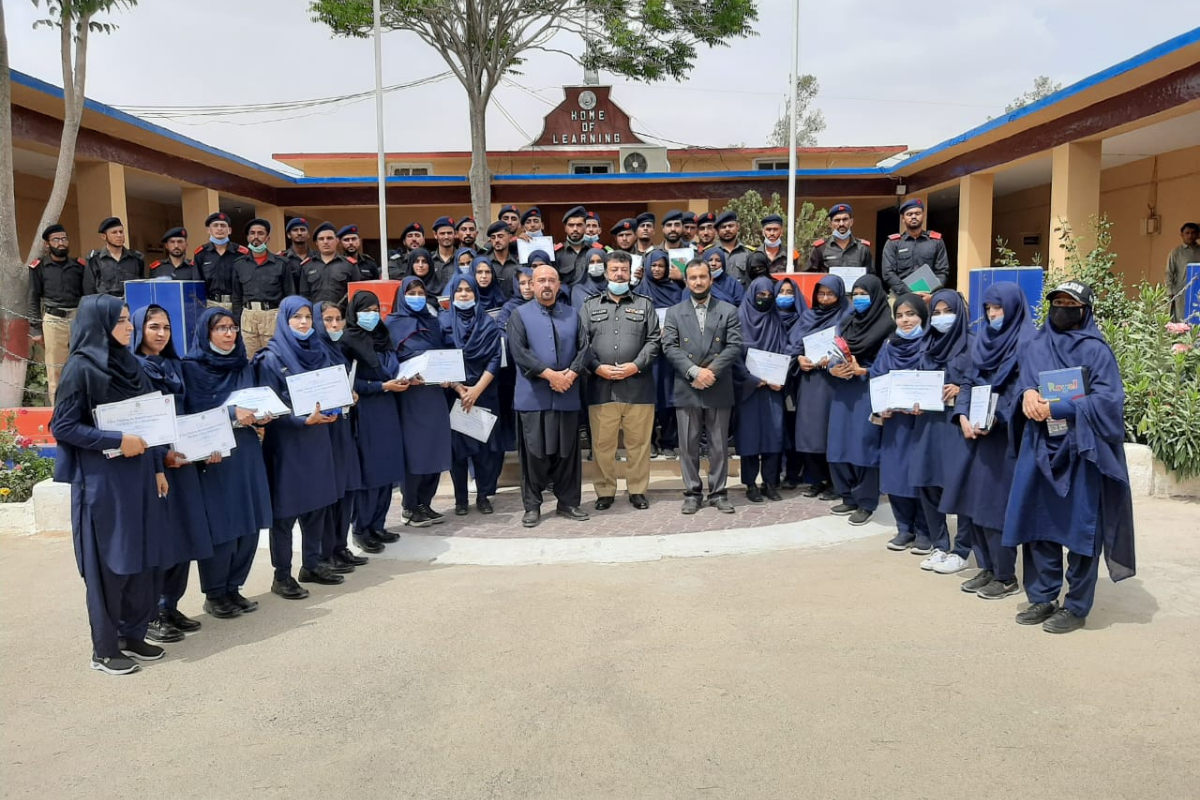
Islamabad (Pakistan), 26 April 2021 — Female police officers constitute only around 1.5 percent of the entire police force in Pakistan. This number is much lower in Balochistan, one of Pakistan’s four provinces, where structural and cultural barriers make it difficult for women to participate in the workforce beyond their traditional and social roles as homemakers, mothers and primary caregivers. Social pressure or expectations often prevents women from seeking equitable participation within most professions.
Pakistani women who are able to, may opt to become police officers; to experience working outside the confines of their traditional roles. However, the choice is often limited to either performing ‘desk work’ at a police office, carrying out body searches on women, or making way for police raids by knocking on people’s doors.
Within this complex background, UNODC has readily taken initiative through its Rule of Law (RoL) programme and trained the first-ever cadre of female police officers in Balochistan as first responders for Gender-Based Violence (GBV). The young and enthusiastic female police officers have since been inducted. This effort effort that was made in close collaboration with the Quetta Police Training College (PTC) through the Inspector General Police office in Balochistan.
As Balochistan continues to battle the COVID-19 pandemic, there have been noted gaps in the provision of assistance and services to victims and survivors of GBV — a veritable challenge that constitutes the so-called shadow pandemic. However, now these female police officers and ‘first responders’ are all set to confront this challenge and work as a vital force that can provide much-needed support to female victims and survivors of GBV in the province.
Both research and experience has shown that empowering female police officers to take on these roles is one of the most effective ways to address GBV crimes. Having female officers at the frontline of GBV also remains the most effective way of providing humane support services to the victims and survivors of such crimes.
The empowerment of female police officers remains a priority for both UNODC and its partners; enabling women to take on the role of first responders, but also, going one step further towards making tangible contributions in combating GBV crimes.
Twenty-five female police officers from nearly every region of Balachistan took part in the training and are now ready to deputed across different districts of the province after receiving their certifications. Male police officers also participated in the training, contributing to enhanced coordination among female and male police officers.
The female and male participants were enthused to take on their new roles and fully understood that continuous learning would become an integral part of building up their knowledge and skills. This ongoing commitment will enable them to assume their roles effectively and provide appropriate support to survivors and victims, placing aside biases and dispositions.
As part of its umbrella Rule of Law (RoL) programme, UNODC aims to provide further trainings focusing on police skills reinforcement; including forensics science, investigation skills, public dealing, gender sensitization, and gender-responsive policing.
The initiative was graciously supported by the Bureau of International Narcotics and Law Enforcement Affairs (INL) and implemented by UNODC.